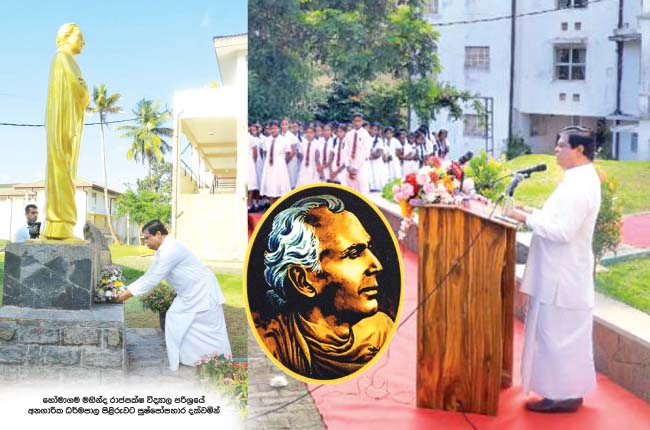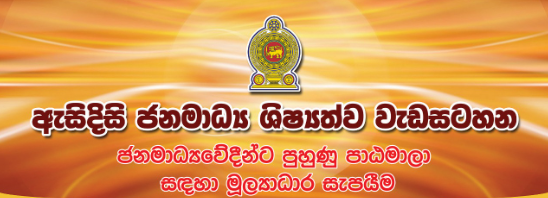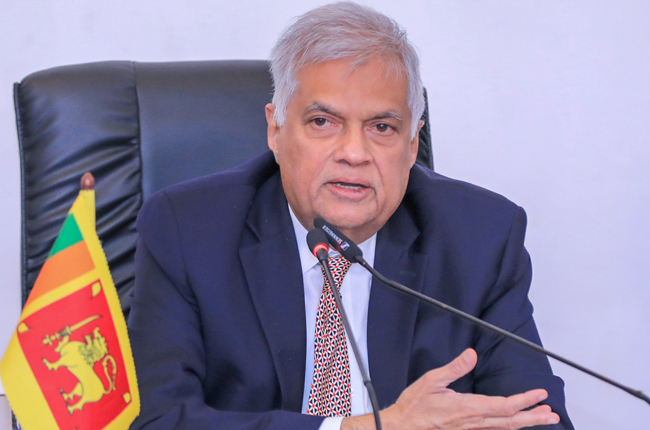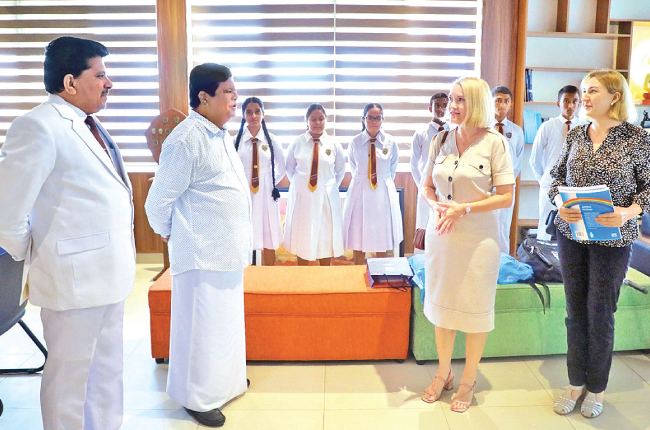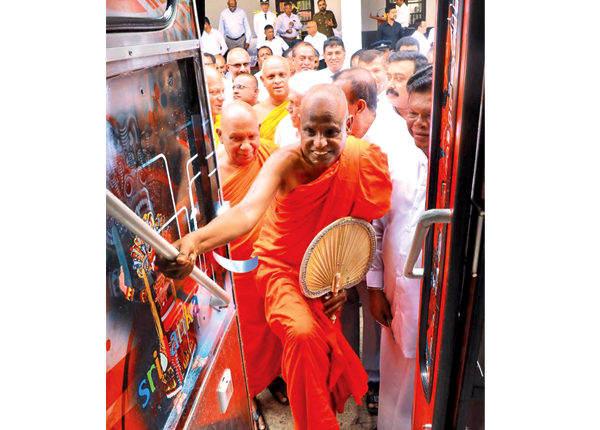On the occasion of the 159th birth anniversary of Anagarika Dharmapala on the 17th of September, a commemorative programme was held before the statue of Sir Anagarika Dharmapala in the Homagama Mahinda Rajapaksa College, under the patronage of the Minister of Transport, Highways and Mass Media.
Addressing the event, the Minister expressed the following views as well.
,”Anagarika Dharmapala called the then church-based missionary education system not inclusive of local heritage. He selected the talented youth of the country and offered them scholarships to receive education in countries like America, England, France, Germany, Japan, etc.
“Education is the only way to save our nation. Sri Lanka has an illegitimate education system. We have to send Sinhalese youths on scholarships to countries like America, England, France, Germany, Japan, Hong Kong, etc. and start building the nation with them. To develop and become self-sufficient, consumption of foreign goods must be avoided. Every commodity that can be made in the country must be produced and used. By restarting industries in the country, wealth and employment generation can be increased.
Wealth creation, circulation. and exchange should be based on an understanding of the basic principles. Only administrative officers with competent expertise should be appointed to high positions of responsibility. Since acquiring knowledge of foreign languages is a national need, a program should be prepared for that.
“Mentioning this statement, my book ‘Mysterious Investment and Money Laundering’ was dedicated to His Excellency Anagarika Dharmapala.
“I believe that when I was the Minister of Education who has given the highest respect to Anagarika Dharmapala’s national education principle in recent history. I introduced the technology stream to the education system of this country where only science, art and commerce streams were available for the Advanced Level. I faced countless obstacles and insults during this endeavour and the JVP put up a poster campaign urging the Minister of Education who they claimed destroyed education immediately resign. Recently, they burnt down my house.
“In the Mahindhodaya Technical Laboratories built by devoting all my time at that time, a computer lab with 40 computers, a language lab with 20 computers for acquiring foreign language knowledge, a math lab, and a classroom for distance education have been installed. Two hundred fifty-one Mahindhodaya Technology Faculties were established for technical education. The ground floor of the building has been designed with the necessary machinery and equipment for engineering technology. The first floor has been allocated for learning modern agriculture, irrigation technology and bio-system technology. The third floor consists of classrooms for children. Around 1,000 Mahindodaya technology laboratories have been created in this way, all over Sri Lanka.
The thought of Anagarika Dharmapala lives in the 251 Mahindodaya Technical Faculties and in the Technology stream. So far, 13 technology faculties have been established in universities. More than 5,000 students are enrolled in those faculties every year and they obtain the knowledge to bring out the innovations needed in the world tomorrow.
“Anagarika Dharmapala, the father of national education, sacrificed his sweat, labour and wealth to raise the national education of the country together with many contemporary scholars. Therefore, he must be named the father of national education. The current generation must follow him and think beyond ordinary thinking. They must look more than they see. They must practise peace and harmony. We should be determined to serve the country for the good of the people.”
The Maha Sangha led by the Chairman of the Homagama Shasanarakshaka Bala Mandalaya, the Assistant Director of the Piriven Division of the Ministry of Education Ven. Madowita Vajirabuddhi Nayaka Thero, the Ven. Maduluawe Dhammika Thero, the chief of Uttararama temple of Pitipana, the local government officials, public representatives, the Principal of Homagama Mahinda Rajapaksa College, Mr. Sarath Bandu Kumara, the Deputy Principal and the teaching staff of the college, parents and students were present for this event.

